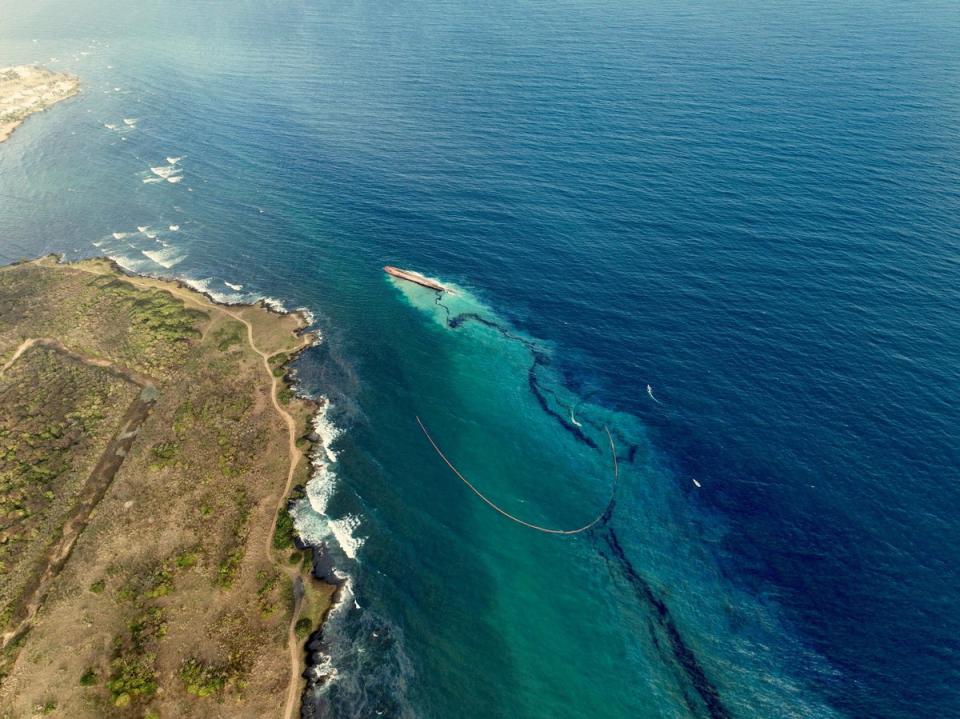Massive oil spill hits beaches of popular Caribbean tourist destination
Trinidad and Tobago is under a “national emergency” after a massive oil spill coated numerous beaches along the Caribbean nation’s southwest coast, raising concerns about the impact on the environment and tourism.
Keith Rowley, the prime minister of twin-island nation, said on Monday the cleanup efforts were being carried out and the situation remains out of control,
“This is a national emergency and therefore it will have to be funded as an extraordinary expense,” Mr Rowley said, adding, “we don’t know the full scope and scale of what is going to be required.”
“Right now, the situation is not under control. But it appears to be under sufficient control that we think we can manage,” he told reporters.
An oil spill occurred on the southern shores of Tobago Island on 7 February through an unknown vessel that had “apparently drifted upside down into Tobago,” the prime minister said.
The vessel leaked tons of chemicals into the seawater and about 15km (9miles) of the coastline “is now blackened,” according to the country’s Office of Disaster Preparedness and Management (ODPM).

Mr Rowley said the government is yet to identify who the owner of the vessel was or how much the cleanup will cost, but he vowed that the government will spare no expense to help rehabilitate the island’s beaches.
“That vessel, we don’t know who it belongs to. We have no idea where it came from and we also don’t know all that it contains,” he said at a press conference reported by the Trinidad & Tobago Newsday.
“What we do know is that it appears to be broken and is leaking some kind of hydrocarbon that is fouling the water and the coastline,” Mr Rowley added.
Divers went out to the boat and did not see any signs of life. The boat was apparently abandoned and left to sink, authorities said.

They also have not been able to locate registration information for the vessel, identified as the Gulfstream.
“That vessel could have come to us from any kind of operation, especially if the operation is illicit.”
Officials say divers have been struggling to contain the leak, but they were trying to find ways to remove the remaining oil.
Concerns about the spill’s damages to the pristine island’s ecosystem and tourism are mounting with costs associated with the cleanup expected to soar.
The toxic substances in the oil can have long-lasting impacts on fish, coral reefs, and other marine organisms, leading to reduced biodiversity and the collapse of fisheries. The Caribbean Region is highly dependent on tourism that its blue waters and white sand beaches attract.
Mr Rowley said several countries have offered to help, and discussions about those efforts are ongoing.
“Cleaning and restoration can only seriously begin after we have brought the situation under control,” Mr Rowley said.
“It’s too early to know how much the cleanup will cost, but some not-so-insignificant costs are being incurred just to respond to this incident,” he said.


